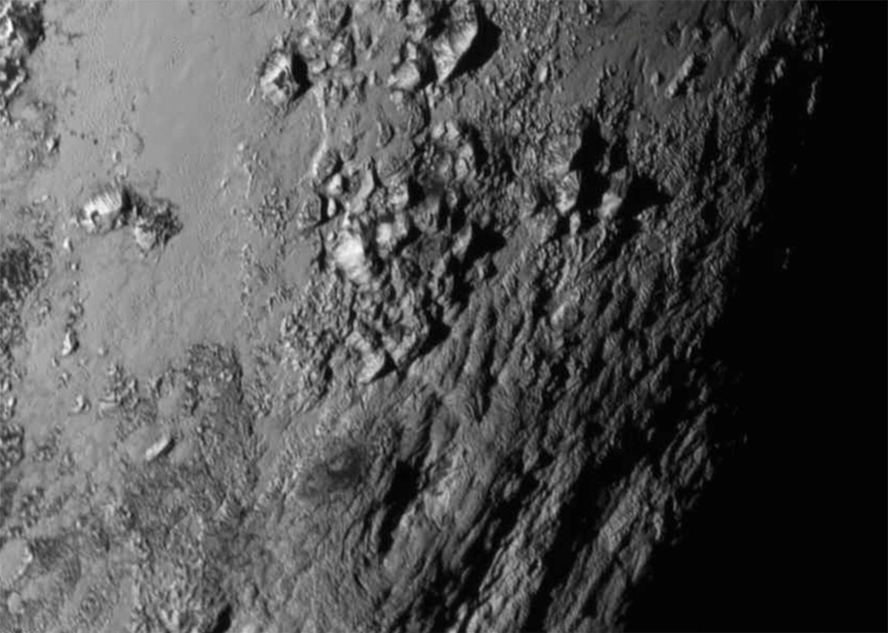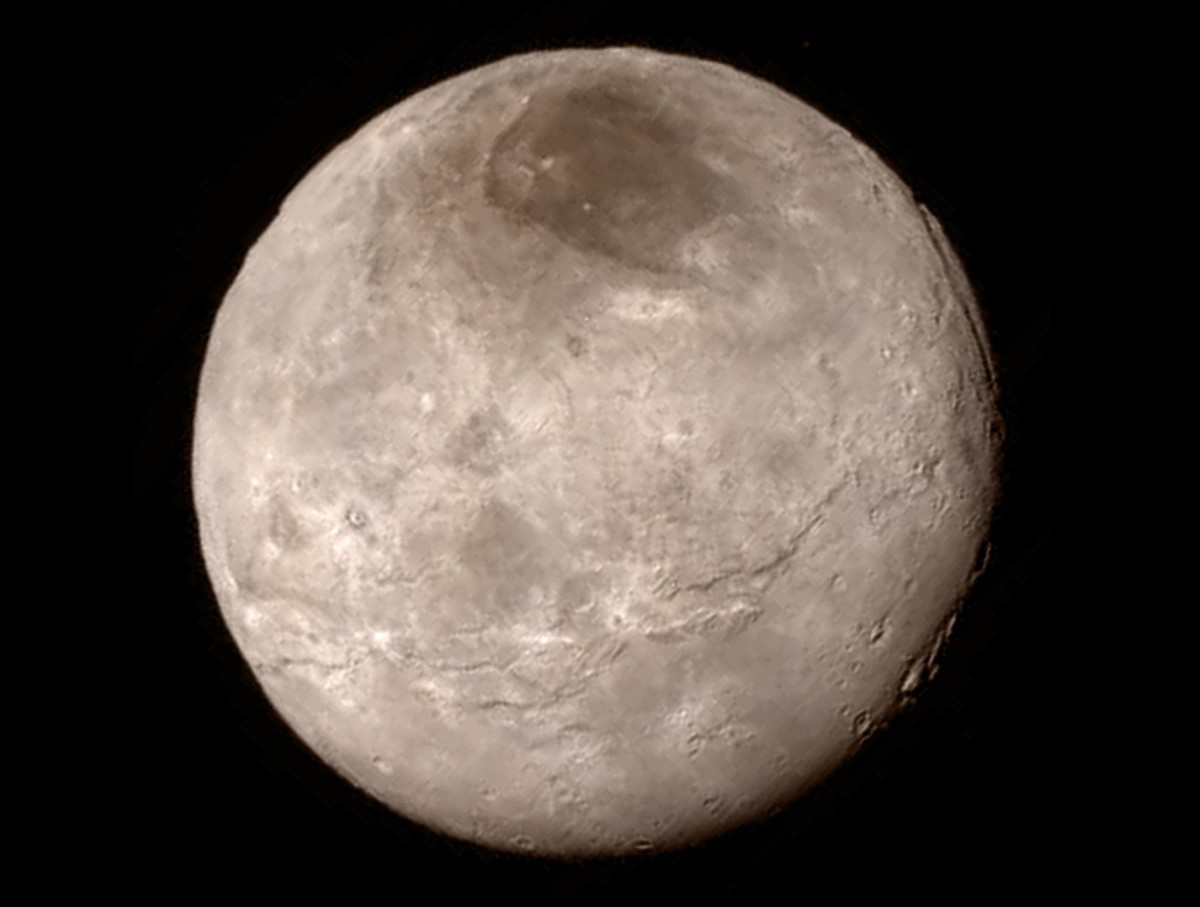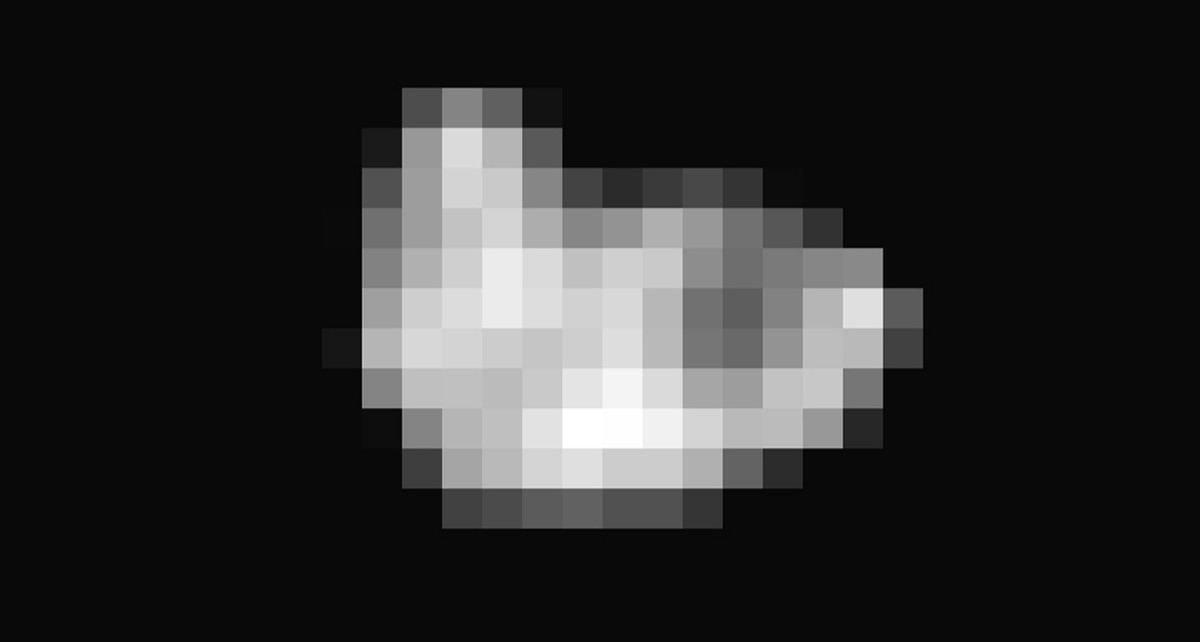High ice peaks in Pluto

The last image of Pluto, inaugurated by NASA, shows 3,500 meters of mountain. And New Horizons has sent a new image of Karon and another of Hydra.
In the equator of Pluto, next to the “heart”, are the mountains that are seen in the image. They believe it may be made up of water ice. And although on the surface of Pluto there is a lot of methane and nitrogen ice, these are not as strong as to form mountains. Water ice at the temperature of Pluto is like a stone.
It is estimated that the mountains do not exceed 100 million years. Not much in a 4.5 billion year solar system. “It’s one of the youngest surfaces we’ve ever seen in the Solar System,” explains Jeff Moore, a member of the Geology, Geophysics and Image Group of the New Horizons mission. Furthermore, this means that Pluto could still be geologically active. However, they are not very clear what this geological activity can cause.
And it seems that Karon also has geological activity. In the last figure is a canyon 7-8 kilometers deep (on the upper right edge of the moon). In addition, researchers have been surprised by the shortage of craters and those that exist seem very young.
On the other hand, New Horizons has also sent an image of Hydra, which has revealed its irregular shape and its size of 43 x 33 kilometers. Researchers have also found that it is probably covered with water ice. They expect to know more when new images arrive.
Undoubtedly, in recent days we have received more information about Pluto and its system than ever before, and in the coming months we will get to know in greater detail as the mission's work team collects and analyzes the information collected by the probe. Finally, NASA explains how Pluto's view has been illuminated:








